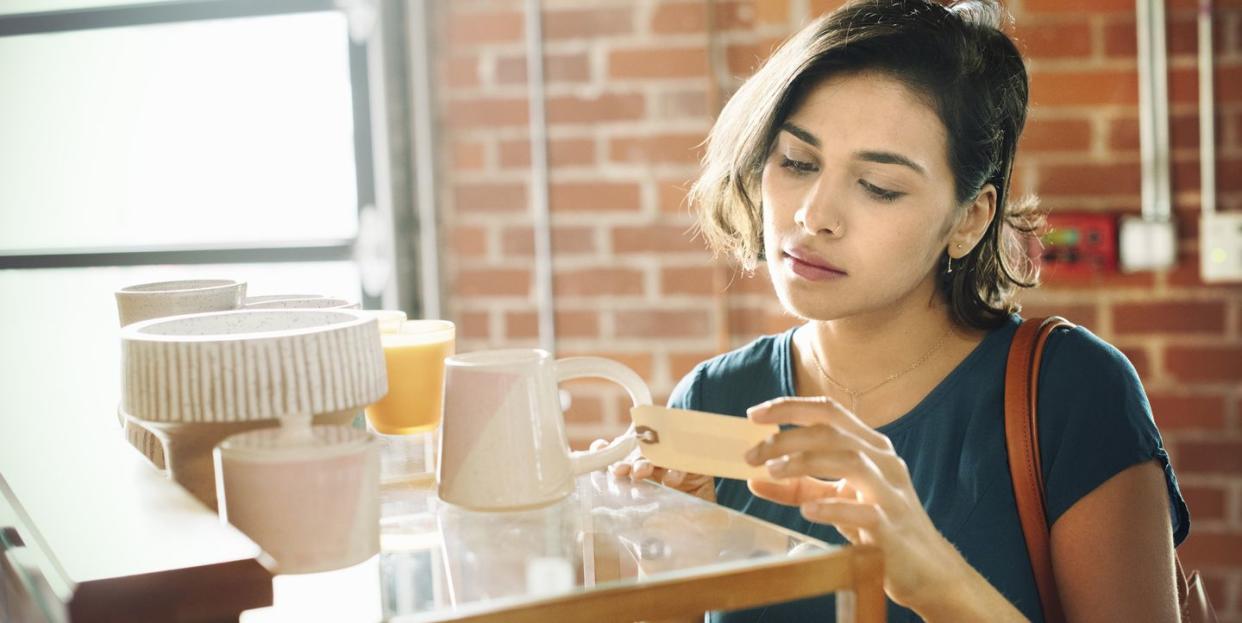Try These Waste-Free Tips If You Want to Give Gifts Like a Minimalist

In a world where there's so much unconscious pressure to constantly buy new things, adopting a minimalist approach to shopping can bring a refreshing shift in perspective. Minimalism focuses on simplicity, intentionality, and the removal of excess, and it can be a great practice to help you scale back your spending and reimagine new uses for what you already own.
When it comes to gift-giving specifically, it can seem like the concept of minimalism is in opposition with spending money on others. However, there are plenty of ways you can get creative with your gift-giving that don't involve buying more stuff to potentially add to the clutter in your loved ones' lives.
We asked a lifestyle expert to spill all of the secrets on how to gift like a minimalist, so you can be sure that your presents hit the mark and align with your recipient's (and your) values.
Prioritize experiences over objects
One of the fundamental principles of minimalist gifting is emphasizing experiences over physical objects. In other words, don't just buy something for the sake of buying something.
“Planning an experience, a meal together, even a walk in the city is a gift in itself,” says Francesca Verri, a certified holistic lifestyle and minimalist coach. “Today, many get caught up in thinking that ‘giving’ must be in a physical form that we miss all the other ways you can ‘give’ of yourself and with your time.”
When thinking about the best experiences to gift, Verri says to keep in mind who the person is and try to choose something you know they need or would love. She suggests a special dinner, going to a movie, concert tickets, a wine tasting, a massage, or even helping a friend complete a project they haven’t been able to finish.
“I am a fan of creating those experiences and time to connect more intentionally. It is a gift that keeps on giving and is worth far more than an object that a person may or may not even like or need.”
Quality over quantity
Minimalism promotes the idea of quality over quantity. So, if you're going to buy a gift for someone, it's better to invest in a luxury gift that's sure to be appreciated for a long time rather than something cheap. When you're coming up with ideas, Verri recommends "having a good sense of what someone likes, needs, will use."
“I think one common misconception might be that minimalist gifting has to be boring or not anything too flashy or big,” Verri says. But by choosing quality over quantity, you show a deeper level of thoughtfulness and consideration.“It doesn’t matter the size of the gift as much as what that gift represents.”
Gift with purpose
If you've decided to start practicing a minimalist, no-waste lifestyle, you might find that this mindset will gradually guide you to start making better buying choices in many aspects of your life, and you'll feel less tempted to gift something that'll just take up space in someone else's home.
“While owning less might be the result of following a minimalist mindset and lifestyle, you're also being deliberate to keep only what serves a purpose, has meaning and necessity,” Verri says.
Thinking about gifts that you know will be useful to your recipient is a great place to start. For example, books and educational resources make excellent minimalist gifts. You can choose literature that aligns with the recipient's interests or goals, such as an inspiring, feminist book, a cookbook, or an online Spanish course.
Consumable gifts for foodies are also great for minimalists to give, as they can be enjoyed in the moment but will eventually be used up. Think gourmet olive oil, artisanal dark chocolates, or teas and coffees. These gifts provide moments of indulgence without adding to long-term clutter.
“Just because someone is a minimalist, it doesn’t mean they don’t want anything!” says Verri. “ I have heard people say that because I am a minimalist, I don’t like gifts. Which of course isn’t true. I just don’t like clutter-causing things — things that I really don’t need (like another mug!).”
You Might Also Like

